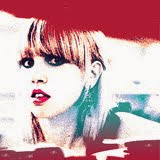“If you think about it, the word "composing" or "to compose", means "to put together". So, you have to know what to put together and what to leave out.”
It's been quite some time since I wrote my last blog, I went on a great holiday and almost completed a new project.
Writing a new cycle made me think more about my style of composition and made me analyse how I come up with the ideas and what I like about my particular approach.
This cycle is called "12 Colourful Preludes" and it consists of 12 small preludes, each one of those has some variation of the word "colour" in their titles.
So it's not a about different colours (red, black, white etc), but it's more about the actual meaning of the colour - tone, hue, tinge, paint or combination of colours like "monochrome", "pallette" etc.
Also I do not see colours in particular keys (like Scriabin), but I'm able to see colour in a particular piece of music or a note, but it can change depending on the mood.
And this cycle is about different moods and not different colours.
They are:
1. Block colour of C
2. Layered graphites of C sharp
3. Dreaming of wintery stills in D
4. Enigmatic palette of E flat
5. Clownish colourfulness of E
6. Violet shades of F
7. Breaking the rules of painting in F sharp
8. Transparent aquarels of G
9. Dramatic tones of A flat
10. Anxious tinges of A
11. Monochromes of B flat.
12. Fairytale hues of B.
Sheet music is also on the way.
Here I'm answering some questions that I asked myself. :)
| Erik Satie. |
- Why Erik Satie? I dedicate this cycle to Erik Satie who appeared to have been a "godfather" of this kind of composition, the one who inspired Debussy, Stravinsky, Ravel - who in turn influenced me.
- Why cycles? I think I've been writing short form for a long time, and now I'm ready for a much bigger form and the cycles are my transitional period. This is a second cycle I wrote (the first one is quite monumental, "Seasons and Places" which is still unreleased as I'm waiting for the right time), but this one is my favourite nowadays because I get to explore my modernistic part and I like the way it gets developed.
- How was this cycle born? When I read more about Satie in Wiki, I became so inspired that I wrote 7 preludes in the space of a few hours, it happened on 16th of August. And the other 3 pieces were preexisting compositions that didn't fit anywhere and were just waiting for their time. And the last 2 were born on 31st of August. :)
- Why 12? For each note of the chromatic C scale. I wasn't strict about sharps or flats, I called black notes the way that I feel them, for example, I always feel A flat and never G sharp. And C sharp makes more sense to me than D flat. Et cetera. So I went with my feeling as opposed to the rules of classical chromatic harmony. :)
- Are they tonal? Some of them are, and some - aren't, they are mostly named after the base note that they start with, but I'm not concerned with keeping the particular key, it's all about the mood of that very first note. I'm a big fan of the atonal or modulational (if that's a word!!) composition.
- Major or minor? To me - those two are easily interchangeable, especially in impressionism, so I didn't label any prelude as major of minor (title-wise), except for the key signatures in sheet music. :)
- How do you play them? The idea is - to perform cycle as a whole as it's programmatic and interconnected. But each prelude can still exist on their own, only their conceptual meaning would change
 |
| Alexandra Khrobostova. "Psychodelic tree" |
- Just piano? So far - yes, but I'm thinking of possible arranging an entire cycle for viola and piano, I have written a viola part for one of the preludes already, "Anxious tones of A".
- Was it thought through? No, the writing of this preludes is completely improvisational and complete by playing a prelude through from the beginning to an end (I record them straight into midi as they come to me, so it's gonna be easier for me to create sheet music in Sibelius later), and only 2 of them have any minor "afterthought" additions or changes.
It will all happen during the month of September and I'm planning the release for the end of September, beginning of October.



